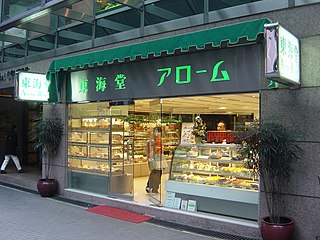 W
WThere is a long history of alcoholic drinks in China. They include rice and grape wine, beer, and various liquors including baijiu, the most-consumed distilled spirit in the world.
 W
WChinese bakery products consist of pastries, cakes, snacks, and desserts of largely Chinese origin, though some are derived from Western baked goods. Some of the most common Chinese bakery products include mooncakes, sun cakes, egg tarts, and wife cakes.
 W
WChinese desserts are sweet foods and dishes that are served with tea, along with meals or at the end of meals in Chinese cuisine. The desserts encompass a wide variety of ingredients commonly used in East Asian cuisines such as powdered or whole glutinous rice, sweet bean pastes, and agar. Due to the many Chinese cultures and the long history of China, there are a great variety of desserts of many forms.
 W
WThis is a list of Chinese dishes in Chinese cuisine.
 W
WThis is a list of notable Chinese restaurants. A Chinese restaurant is an establishment that serves Chinese cuisine outside China. Some have distinctive styles, as with American Chinese cuisine and Canadian Chinese cuisine. Most of them are in the Cantonese restaurant style. Chinese takeouts or Chinese takeaways are also found either as components of eat-in establishments or as separate establishments, and serve a take-out version of Chinese cuisine.
 W
WThis is a list of notable restaurants in the political entities named "China"
 W
WThis is a list of notable Chinese soups. Chinese cuisine includes styles originating from the diverse regions of China, as well as from Chinese people in other parts of the world. Many Chinese soups are noodle-based. By 2000 BCE, wheat had arrived in China from western Asia. These grains were typically served as warm noodle soups instead of baked into bread as in Europe. Chinese noodles are used in the preparation of some Chinese soups.
 W
WThis is a list of Chinese teas. Chinese tea is a beverage made from the leaves of tea plants and – depending on the type of tea – typically 60–100 °C hot water. Tea leaves are processed using traditional Chinese methods. Chinese tea is drunk throughout the day, including during meals, as a substitute for plain water, for health, or for simple pleasure.